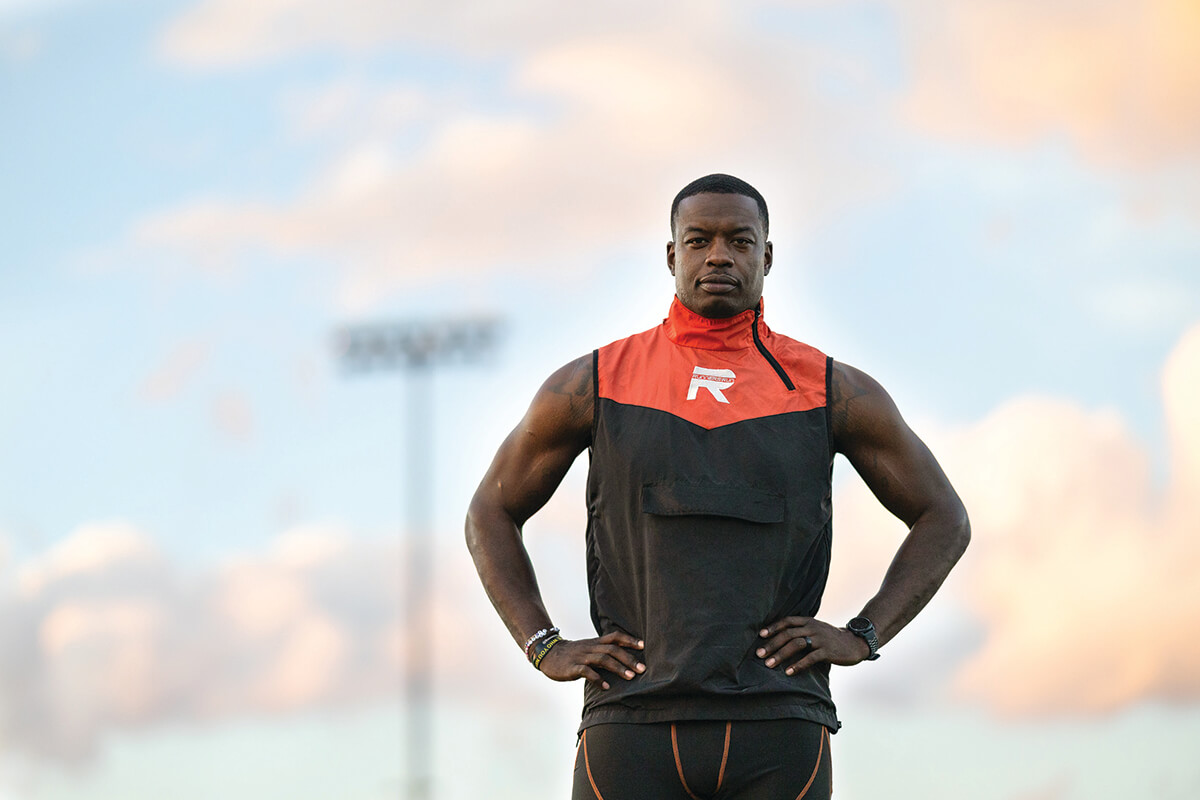Health & Wellness
Runners Run Takes an Inclusive Approach to Uniting the Local Running Community
After noticing a lack of representation at Baltimore races, former NFL defensive end Lo Johnson co-founded the group as “a safe space for all people who want to come and work out,” especially Black runners.

The first thing you’ll notice when you show up to a Runners Run event is the wide array of people there: moms with strollers, walkers with dogs, seasoned marathoners—bodies of all colors and sizes, mixed ages and paces, moving together.
The second thing you’ll notice, because you won’t be able to miss him, is the co-founder of Runners Run, Lo Johnson, a former NFL defensive end and Bowie State standout. His booming voice and wide smile are unmistakable, and his dap-up greeting could sprain your wrist if you’re not careful.
“I’m Coach Lo and I’m here to get the party going!” he says at the start of each run, before leading the group in a series of warm-up exercises.
That same enthusiasm is at the heart of every Runners Run event, and by design. The goal is to serve as “a safe space for all people who want to come and work out,” says Johnson, especially Black runners.
Because while running has seen a recent boom across all demographics, the sport looked much different back in 2019, the year Johnson ran his first race at the Shamrock 5K in downtown Baltimore. Looking around, he noticed that he stood out, and not just because of his 6’5” frame.
“I felt like it was literally two Black people,” says the 37-year-old Baltimore native.
Despite the lack of representation that day, the race’s vibes were great, recalls Johnson, from the buzzing energy at the start line to the festive atmosphere in the celebration zone, with live music and post-race drinks. At another race the following year, he looked at his friends and said, “We need to put on one of these.”
Soon after, Runners Run was born in 2020, hosting their own running events, as well as “shakeout runs” before other local races. And though it wasn’t exclusively for Black athletes, its leadership made sure those runners felt welcome.
“We wanted to bring more Black people out, show them what the running life is about, how fun it is, and how ultimately you can get healthy from running,” says Johnson.
Within a year, the events—like their July anniversary run and September 5K—were drawing more than 200 people, and inspiring other new run clubs to follow suit.
Since then, the impact of Runners Run is undeniable. “If you go to the Shamrock 5K now, there’s at least 100 to 150 Black runners,” says Johnson.
And going forward, the goal remains the same: Assemble all runners of all abilities, spread positivity, and release it back into the community.
“It’s been a blessing to be a blessing,” says Johnson. “To have people DMing us and saying thank you, telling us they love running, going from couch potatoes to running their first 5K—that’s what keeps us going.”